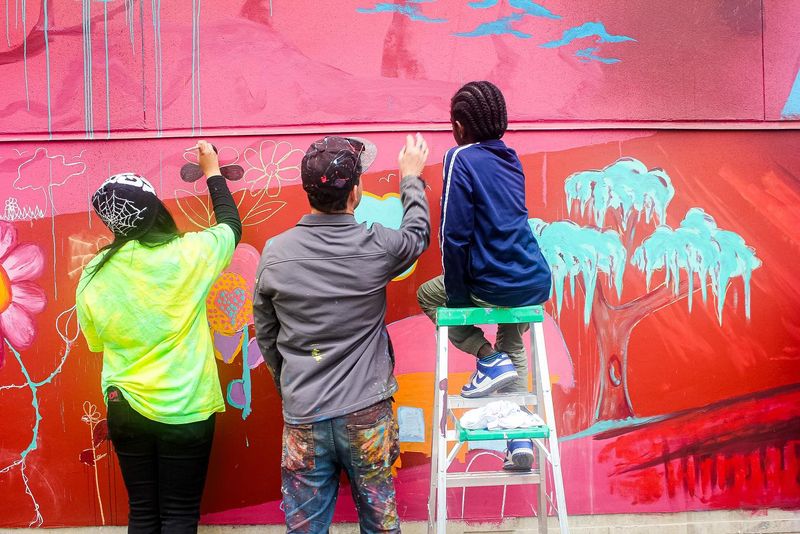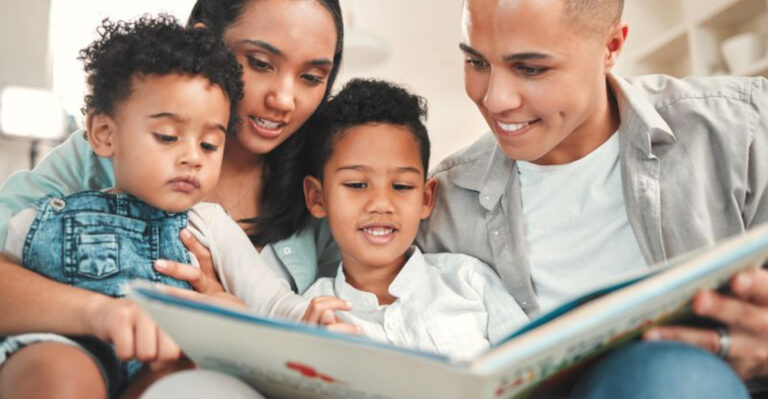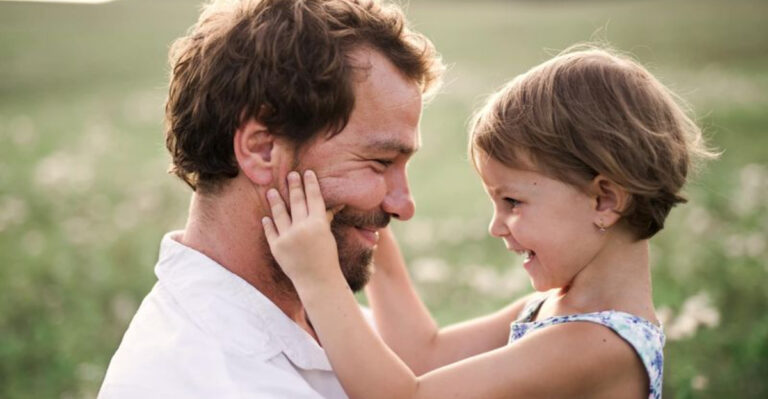15 Clues Your Adult Child Is Actually Doing Okay And 5 Mistakes That Can Still Drive a Wedge Between You
Here’s something parents don’t hear enough: You might’ve done better than you think. Maybe they don’t call as often. Maybe their apartment is messy. Maybe their job isn’t what you imagined when you paid for piano lessons and packed a thousand school lunches.
But here’s the truth: If you look beyond the surface, there are quiet, beautiful signs that your adult child is actually doing just fine—maybe even better in ways you haven’t noticed. You’ll spot them in the way they handle bumps in the road, who they keep close, and how they shape their days.
It’s a new phase, but it’s not a loss—it’s growth. Here are 15 subtle-but-powerful clues your grown child is holding their own, plus 5 well-intentioned parenting habits that can still cause harm if you’re not careful.
1. They Set Boundaries (Even With You)

Ever been told, “Hey Mom, I need a little space”? That’s not shade—it’s a sign they’re learning emotional self-care. Setting boundaries, even when awkward, means they’re prioritizing peace of mind, not just people-pleasing.
It takes guts to say no, especially to family. I used to think boundaries meant distance, but it’s actually the opposite. They’re building healthier connections by showing you where they end and others begin.
Every time your adult child says, “I can’t talk about this right now,” they’re practicing self-respect. That’s not a shutdown; it’s a sign of maturity. Healthy boundaries keep relationships strong—so let’s give them credit for being brave enough to ask for what they need.
2. They Handle Their Own Problems (Even If It’s Messy)

You know those texts at midnight asking, “How do I fix this?” Honestly, those are becoming rare. Now, you see your child rolling up their sleeves and facing challenges head-on, even if it gets a bit chaotic.
They’re Googling solutions, asking for advice when it’s really needed, and sometimes—brace yourself—just figuring it out one step at a time. There’s something wildly impressive about watching someone try, mess up, and try again.
It’s not about having every answer. It’s about learning grit, resourcefulness, and the confidence that comes from solving their own puzzles (even when the pieces are missing). Messes mean progress. Celebrate the effort, not just the outcome.
3. They’re Building Relationships That Feel Safe

Who your child chooses to spend time with says more than you realize. Watch how they light up around friends who genuinely see and support them. That’s not luck—it’s intentional.
Safe relationships aren’t just about romance. It’s about creating a circle that feels like home, where there’s no need to wear a mask. Maybe you spot new faces in family photos or hear stories about hilarious group chats—those are golden clues.
If your adult kid surrounds themselves with folks who love them as they are, you’ve done something right. Their chosen family is proof they value safety and realness. Trust that those connections are helping them grow, too.
4. They Own Their Mistakes Without Spiraling

Remember when your child would break something and instantly try to hide it? Now, there’s a new vibe: “Yeah, I screwed up. What’s next?” Owning mistakes without falling apart is grown-up gold.
It means they’re able to look setbacks in the eye without letting shame run the show. Admitting fault, apologizing, and actually learning? That takes real guts, not just good parenting.
You might even catch them journaling or talking to a friend about what went wrong. That’s emotional regulation in action—far better than pretending everything’s perfect. Growth isn’t always graceful, but it’s honest.
5. They Care About the World Outside Themselves

It’s a big deal when your child starts caring about people they don’t even know. Maybe they’re volunteering, staying informed, or just recycling because they actually care about the planet.
These little gestures mean you raised someone who isn’t living in a bubble. They’re out there, making choices that ripple beyond their own apartment.
You might hear about a cause they support, or see them light up talking about something bigger than themselves. That’s the kind of heart that changes things, even if it starts small. Be proud—you planted that seed.
6. They Know When to Walk Away from What’s Not Healthy

Staying somewhere out of habit is easy. Choosing to leave—especially when it’s tough—means they’ve got their own back. Whether it’s a draining job, a toxic friendship, or a dead-end relationship, it takes guts to say, “I deserve better.”
You might see them pack up and move, or notice the change in their energy when they let go of what’s weighing them down. Walking away is hard, but it’s the kind of strength you hope for.
Celebrate those exits. It means they’re brave enough to trust their own needs and strong enough to start over, no matter how scary that feels.
7. They Make Time for Joy

Real talk: it’s easy to get caught up in paying bills and adulting, but your child still finds reasons to smile. Maybe it’s dancing in the kitchen, obsessing over a new hobby, or just finding time for silly group texts.
Those little sparks of joy? They’re not just for kids. Joy means they haven’t lost their light, no matter how long the workdays get.
It’s not about big trips or expensive treats. It’s the tiny, everyday happiness—like singing off-key or geeking out over a show—that keeps life rich. Spot those moments and know your kid’s spirit is alive and well.
8. They Ask Thoughtful Questions

Ever been caught off guard by your adult child asking something deep? “What was it like when you were my age?” or “How did you handle heartbreak?” Those aren’t just casual chats—they’re growth in action.
Curiosity signals an open mind and a willingness to learn, even if the answers are messy or complicated. It means they’re thinking about life, not just coasting through it.
These questions can spark the best conversations. And honestly? It’s kind of wonderful to watch them look for meaning, history, and connection in places you never expected. Lean in when they get curious.
9. They Budget (Even If It’s Just a Google Sheet and a prayer)

If you find your kid muttering about rent or squinting at a spreadsheet, give yourself a little fist bump. Budgeting—however messy—means they’re stepping up to own their money story.
It’s not about being a financial wizard. Sometimes, it’s just about tracking where the cash goes and dealing with surprise emergencies without a panic attack.
Every bill paid (even late) is a tiny milestone. And if they’re making mistakes? That’s how real financial wisdom grows. Support their learning curve, and celebrate the fact that they’re even trying. Most of us never got that lesson at their age!
10. They Don’t Need Constant Approval Anymore

Once upon a time, your opinion was the sun, moon, and stars. Now? Your child’s making decisions that might surprise you, and they’re not asking for a standing ovation. That’s real confidence.
You might notice they don’t flinch at criticism or fish for compliments like they used to. That shift is huge—it means they’re building their own internal compass.
It’s bittersweet, sure, but it’s also what you always wanted for them: self-trust. Remind yourself that their independence isn’t a rejection. It’s proof they believe in themselves.
11. They Care About Their Health (On Their Terms)

Health isn’t one-size-fits-all. Maybe your kid’s into yoga, therapy, vitamins, or just finally saying no to diet drama. The point is—they’re defining wellness for themselves now.
You might spot them lacing up sneakers or prioritizing mental health days. It’s not about perfect bodies or marathon medals.
They’re tuning in to what helps them feel good, even if it looks different from your routine. That’s real progress, and it’s worth celebrating out loud. Everyone deserves to feel strong in their own skin.
12. They Still Reach Out When It Really Matters

Maybe the calls aren’t daily, but when life gets big—good or bad—your kid still finds their way home, even if it’s just through a screen. Connection doesn’t always mean constant contact.
Pay attention to those moments when they reach out to share big news or lean in for comfort. That’s trust, not obligation.
It means you’re still their safe place, even if grown-up life keeps them busy. Those check-ins count for way more than you think, so hold onto them.
13. They’re Making Peace With Their Past

It’s a powerful thing to hear your child mention therapy, forgiveness, or finally letting go of old hurts. Healing isn’t quick, but every step counts.
Maybe they talk about understanding things that once felt impossible or laugh at memories that used to sting. That’s growth, plain and simple.
When your adult child makes peace with the past, it opens up room for more joy in the present. Support their journey, even if it means having hard conversations.
14. They Laugh Easily

You know you’ve raised a resilient person when they can genuinely laugh—even during the rough patches. Laughter isn’t just about fun. It’s proof they believe in hope, even when life’s messy.
Notice the way they crack up at corny jokes or share funny stories about their week. That ability to find lightness? That’s survival, not just silliness.
A sense of humor is a secret weapon. It’s how we all get through the tough stuff. Celebrate every giggle, because it means their spirit’s just fine.
15. They’re Becoming the Person You Always Hoped They’d Be—Even If It Looks Different Than You Imagined

You might not have pictured your child’s life looking this way—colorful hair, tattoos, or a job you can’t quite explain. But if you look closer, you’ll spot kindness, resilience, and a heart that’s true.
They’re building a life that fits who they are, not who anyone else expects them to be. That’s far more meaningful than any checklist you had in mind.
What really matters? They’re growing into someone you respect, even if the details surprise you. That’s legacy work, right there.
16. Trying to “Fix” Their Life Instead of Just Listening

Advice can feel like love to you, but sometimes it lands like judgment to them. When your child opens up, they’re hoping for a listening ear—not a fix-it session. It’s tough to hold back, especially when you see them struggle.
But trust me: “That sounds hard, do you want to talk about it?” can be more healing than a to-do list. Emotional support trumps unsolicited solutions every single time.
Let them steer the conversation. Show up, listen, and resist the urge to jump in with answers unless they ask. That’s how trust grows.
17. Making Conversations About You Instead of Them

We’ve all done it—slipping in our own stories when they’re trying to share theirs. It’s easy to mean well but end up making the moment about you.
When your kid’s hurting, what they really need is space for their own voice. Let them tell their story before you chime in with your own experiences.
Holding space is an act of love. Let them go first, and you’ll both feel closer after. Sometimes, being quiet is the loudest way to show you care.
18. Criticizing Their Partner, Career, or Lifestyle

You may not love every choice they make, but harsh words about their partner, career, or lifestyle can sting for years. Disapproval sounds like, “You’re not enough unless you fit my mold,” even if you don’t mean it that way.
If things aren’t dangerous or abusive, tread softly. Your support means everything—even when you’re worried.
Remember: they want to feel seen, not judged. Encouragement is fuel for their journey. Criticism? That’s a wedge nobody asked for.
19. Over-Reacting When They Set Boundaries

Setting boundaries takes courage, but reacting with guilt or coldness trains your child to stay silent next time. Nobody wins that game.
If your adult child says they need some time or space, trust that it’s about their needs—not a personal attack. Responding with respect shows you value their emotional health.
Even if it stings, take a breath before reacting. Your child is learning to advocate for themselves, and your support means everything. Let love be louder than hurt feelings.
20. Assuming Silence Means Rejection

Your child doesn’t text back for a week and suddenly you’re spiraling—did you do something wrong? Most likely, they’re just swamped or recharging, not trying to send a message.
Silence isn’t rejection. Life’s busy, and sometimes love shows up quietly.
Instead of taking it personally, trust that the connection is still strong. Give them space when needed and welcome them back with open arms every single time. That’s how you stay close, even when life gets loud.







